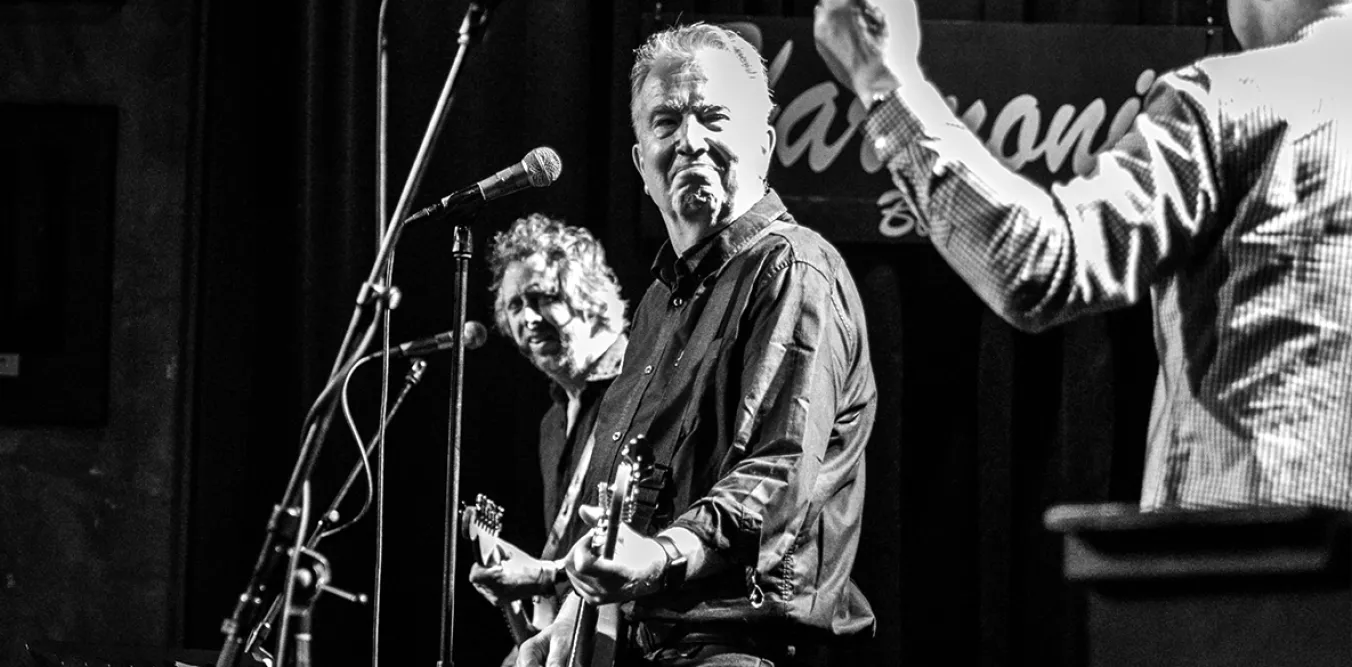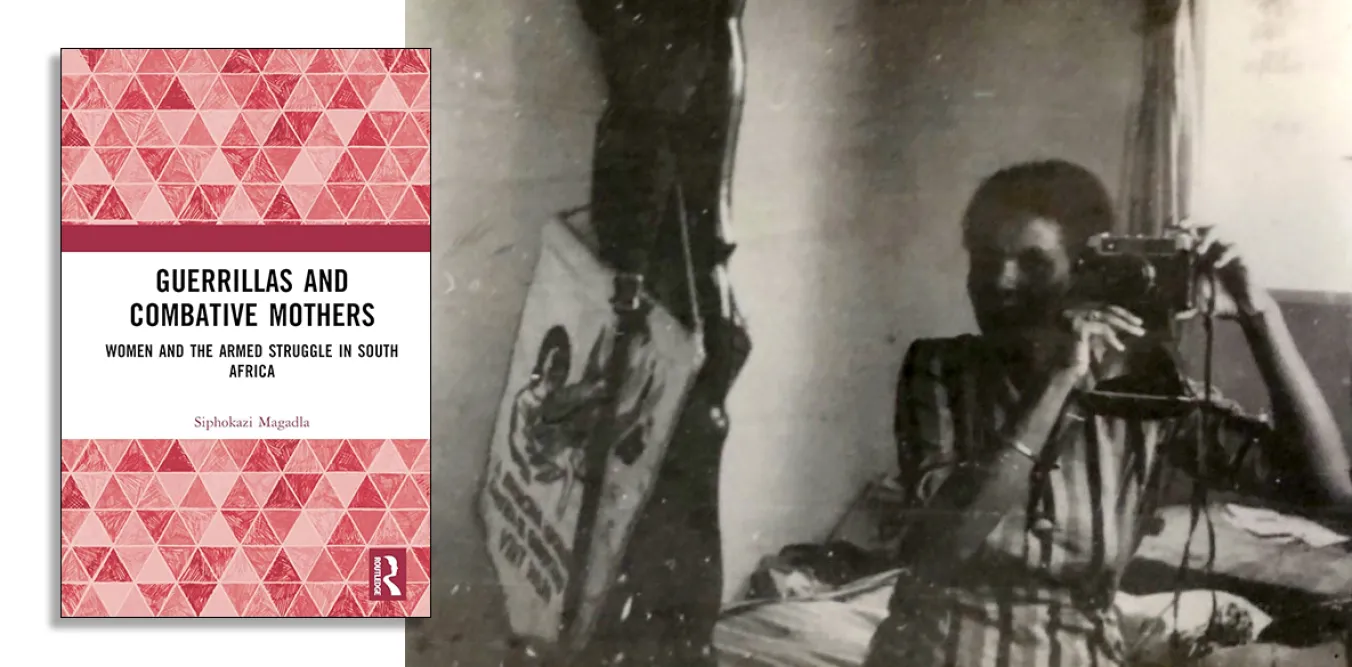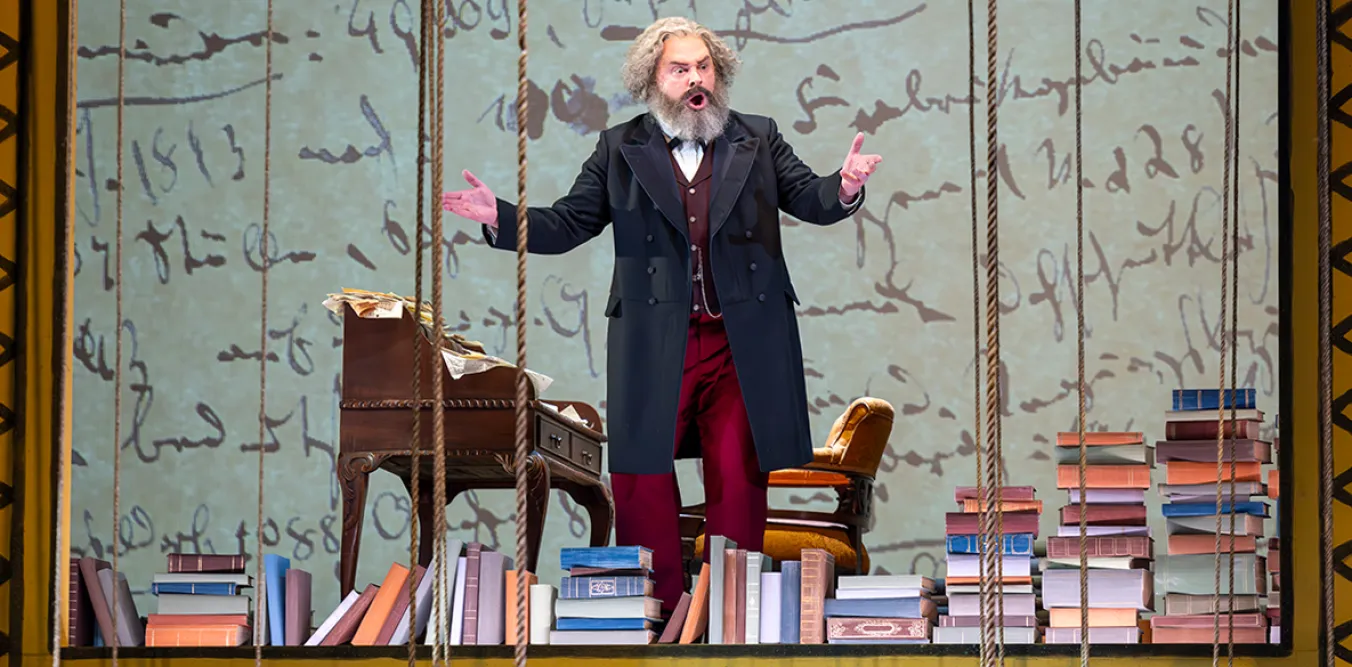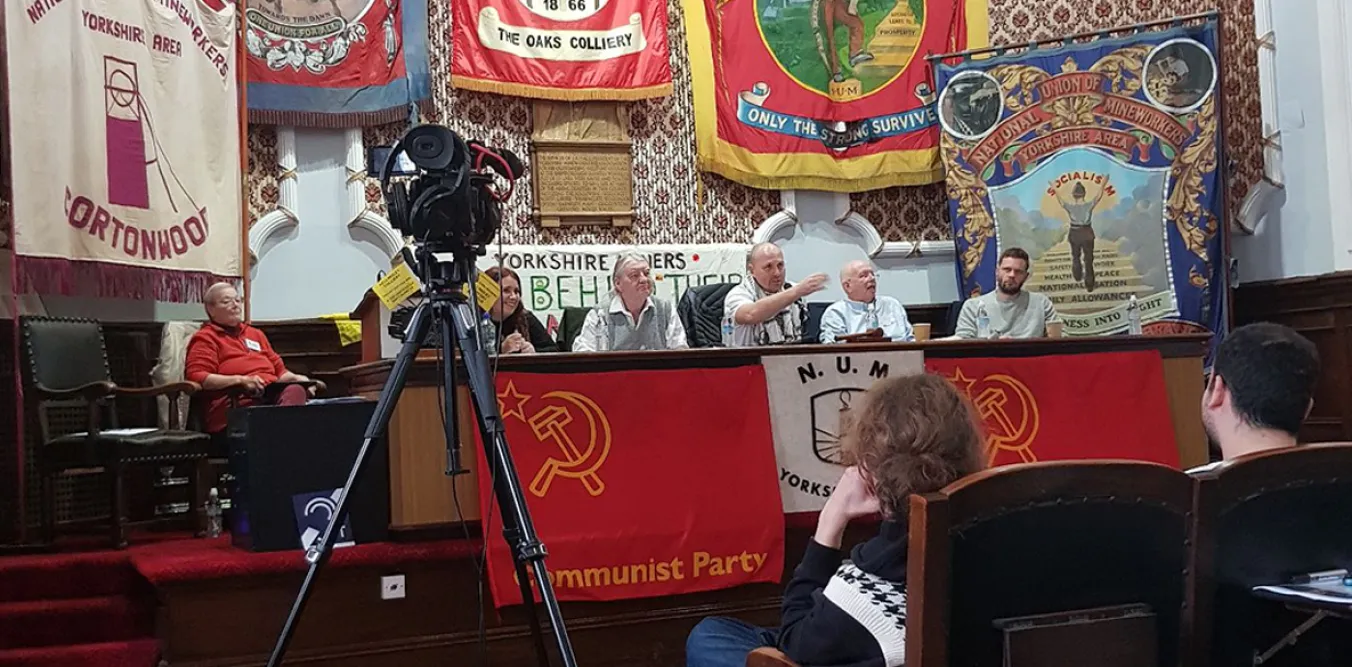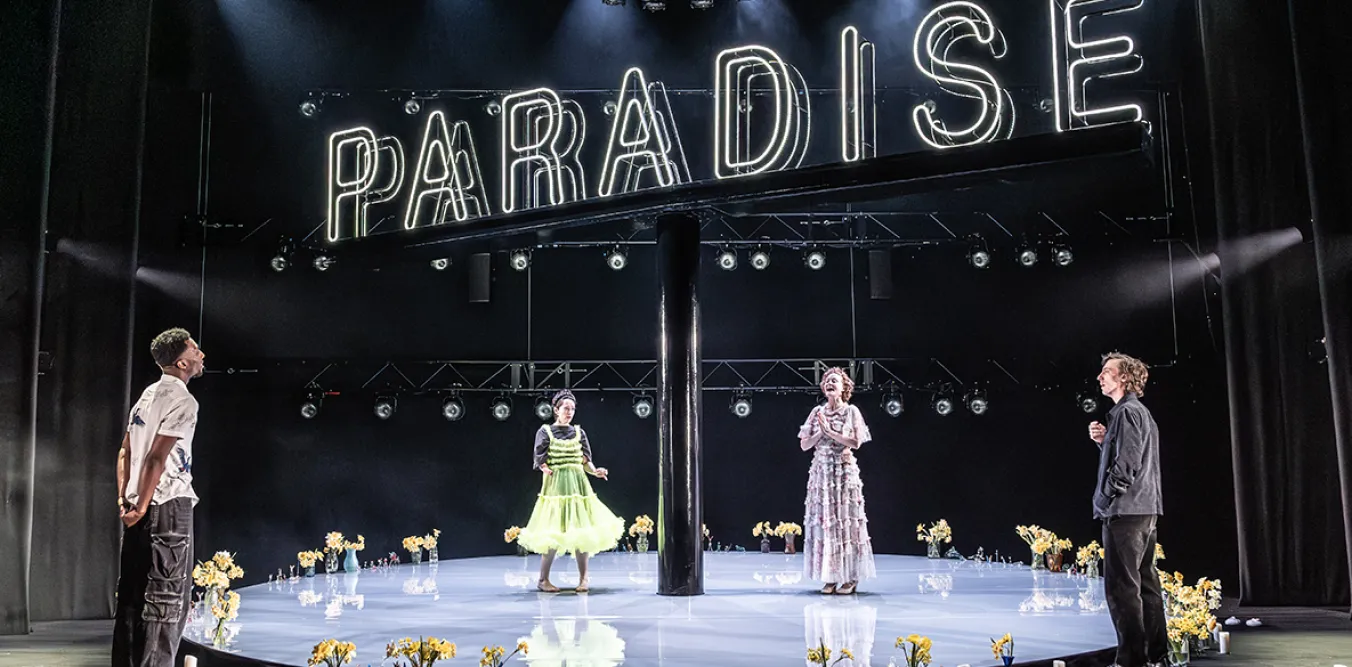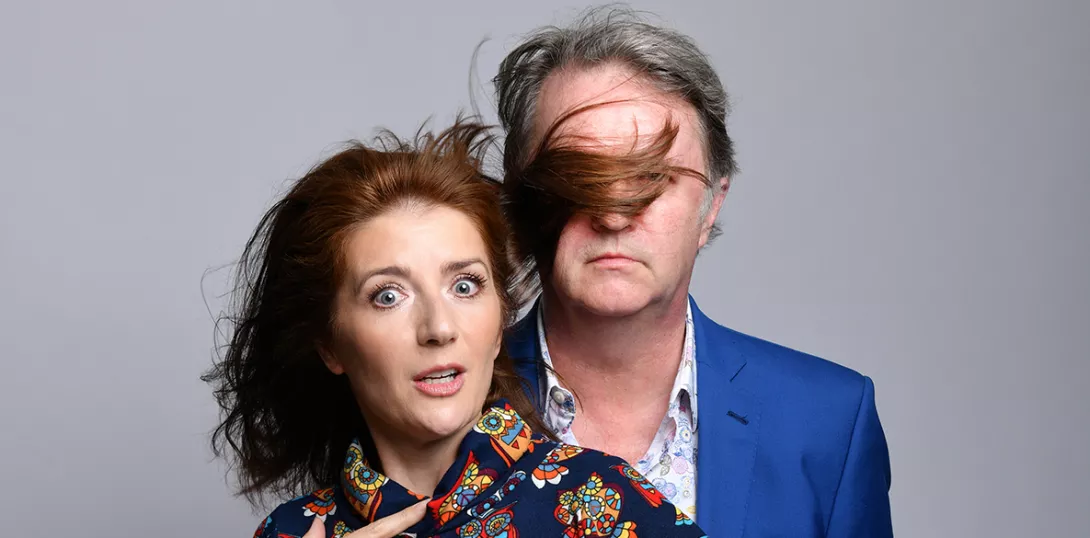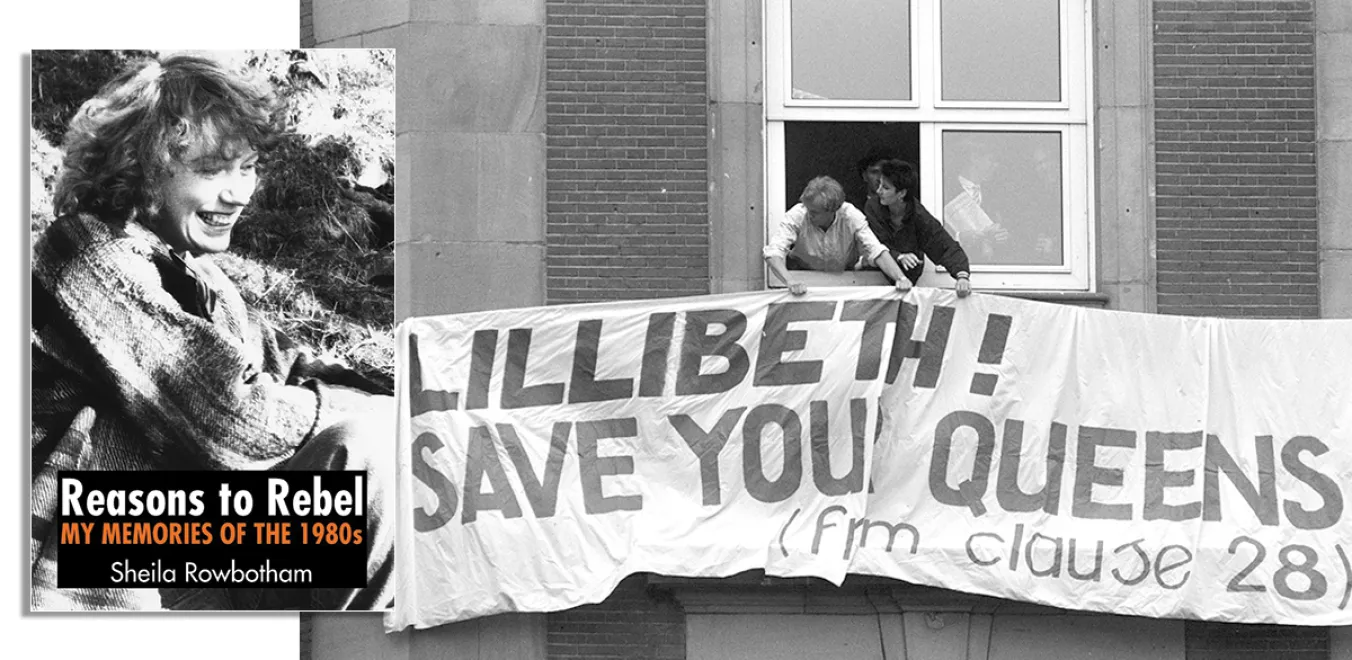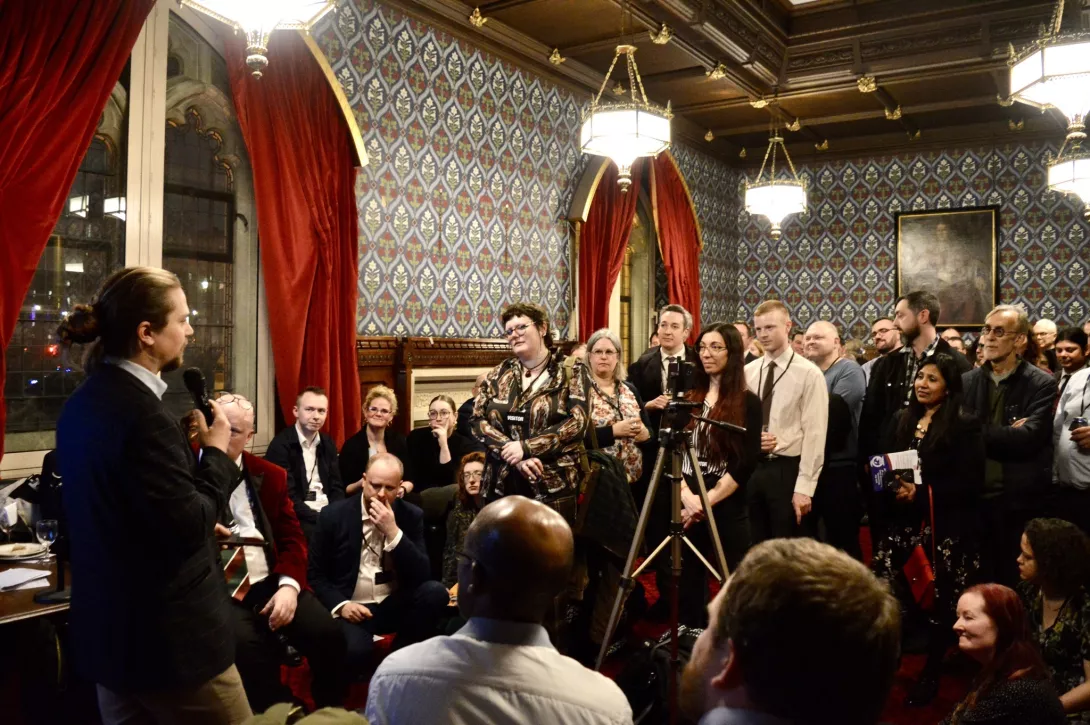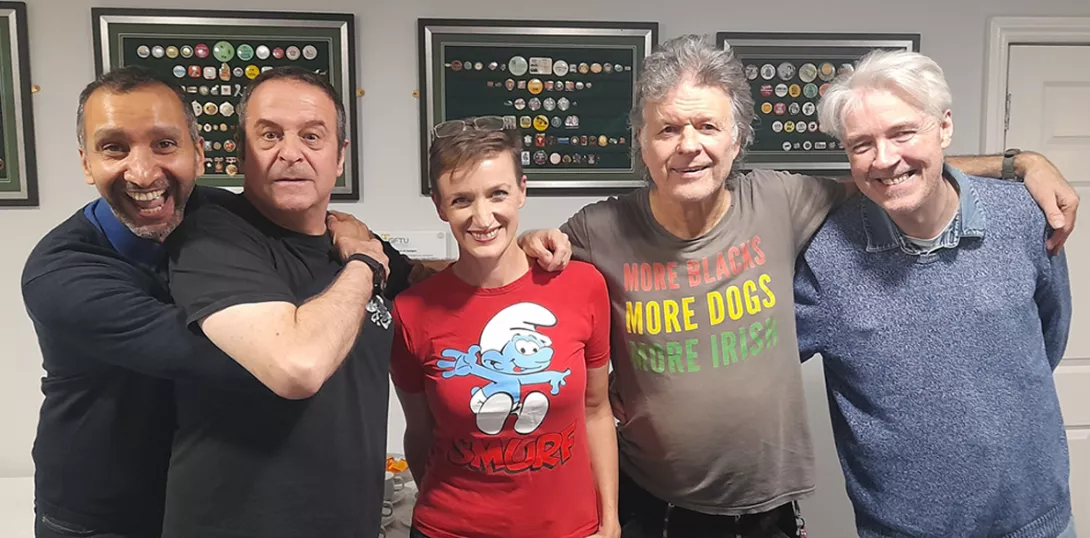
Fair Play Cabaret
Quorn Grange Hotel, Leicestershire (GFTU Education Trust)
DRIVING across the Leicestershire Wolds to Quorn, I narrowly avoid a deer caught in my headlights. It’s fitting that an evening of exhilarating chaos begins with an adrenaline rush.
Fair Play Cabaret opens with a set by compere Mark Thomas. Warming up a small and slightly inhibited audience takes considerable confidence and 40 years’ experience of stagecraft. Thomas breaks the fourth wall, talks about “workshopping” an apparently underappreciated punchline and urges us to rearrange the seating to make performers feel “embraced.” It works brilliantly.
As funny and informative as his much-missed Channel 4 documentaries, Thomas’s act lurches through a range of themes — the vast acreage of land consumed by golf, an airport runway delay, anxieties about the Starmer government and an appearance at a literary festival in Lewes, in the slot before Andrea Leadsom.
This last item prompts a salacious one-liner on the origin of the East Sussex town, and cues some in-yer-face outrage at the notion of being Leadsom’s warm-up act. It’s digressive, but strangely seamless and very funny.
Imran Yusuf’s act is a softly spoken confrontation with the audience. Building rapport through his self-deprecating asides, he riffs on cultural identity, intolerance, religious bigotry and fear of the “other.”
There’s a mix of observation, affable ridicule and fantasy. Yusuf closes with a bizarre scenario in which kosher and halal diets foster a new world order. It builds to an outrageous but irresistible pun.
In contrast, Kate Smurthwaite’s delivery is louder and faster — perfect for her scattershot observations on contrived and anaemic chat-show confrontations, fashions in pubic styling, charity show goody bags containing sex aids and the connection between Covid, bats and hideous sexual proclivities. A fine set.
The show closes with a musical performance of charm, virtuosity and emotional clout. Rory McLeod, an accomplished guitarist with an impressive vocal range, is in his fifth decade as a performer and recording artist. His storytelling, in and between his songs, is compelling, and he has a flair for vividly empathic depictions of vulnerable people.
Themes include the inflexibility of the education system (Pauline’s Song), gun control (No Use for a Gun), the alienation of migrants (A Foreigner Forever) and the cruel absurdities of capitalism (Farewell Welfare). There are instrumentals too — a harmonica piece with bravura effects and Miner’s Picket Dance, which involves harmonica, spoons, tap-shoes and stomp board. McLeod’s music includes hints of Cajun, Celtic folk, calypso, blues and Americana — a treasure trove of the people’s music.
McLeod deserves a much wider audience — and so does Fair Play Cabaret. A cultural campaign to reclaim the performing arts as a space for working-class performers and audiences, it is the brainchild of Mark Kelly, who has secured the backing of Equity.
“The aim is to reinvigorate working-class culture by creating places of solidarity where people feel strong rather than isolated,” says Kelly. “These places existed when I was young, as an important part of working-class culture — working men’s clubs, union halls, workers’ education institutes. It’s very depressing that they have gone.”
The Quorn event — at the GTFU’s headquarters, hotel and training centre, with general secretary Gawain Little at the sound desk — provides a blueprint for a wide-ranging strategy.
Shows will feature comedy, music, spoken word and theatre; everyone associated will be a union member; venues will be union-owned or, at least, employ a unionised workforce; there will be concessionary rates for unwaged people; and all the work showcased will reflect the values of the labour movement.
Fair Play Cabaret is an antidote to social isolation and cultural industries dominated by nepotism and privilege — an ambitious undertaking that deserves our support.
For more information see: equity.org.uk.
